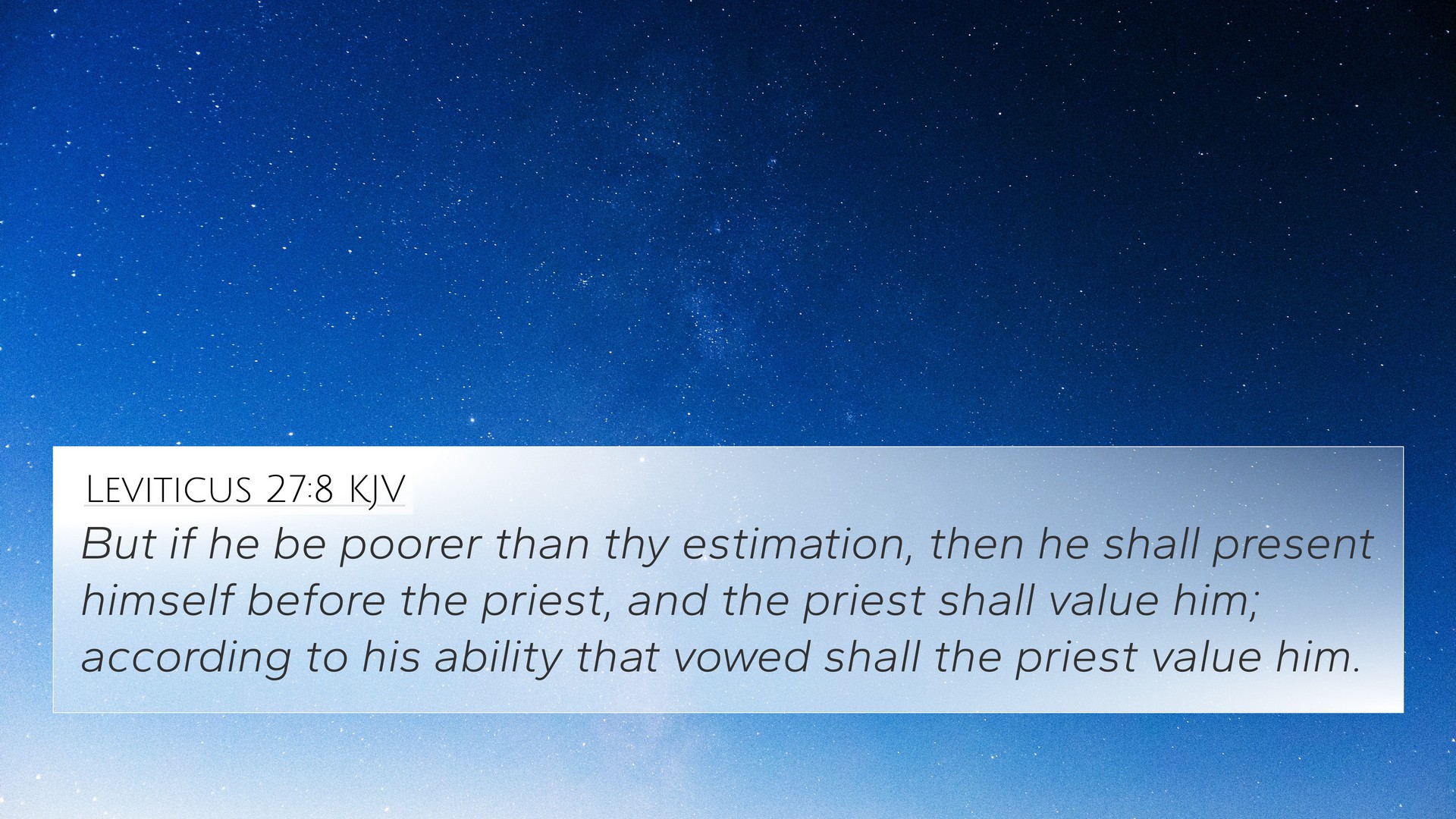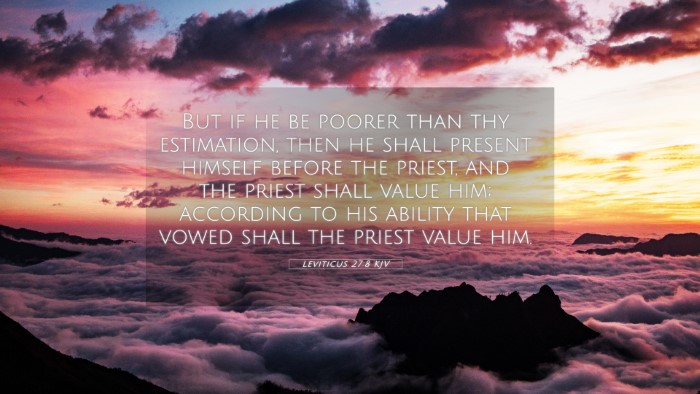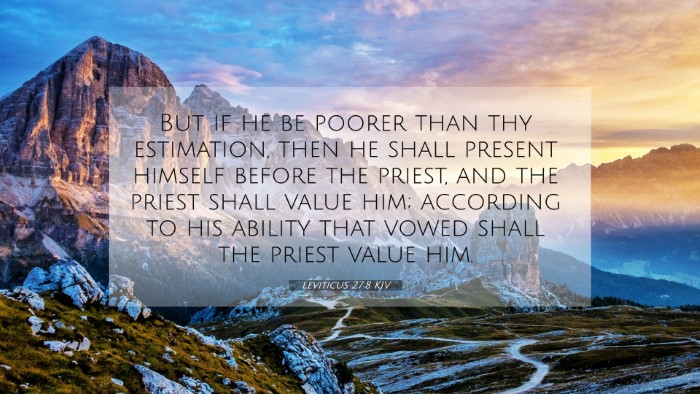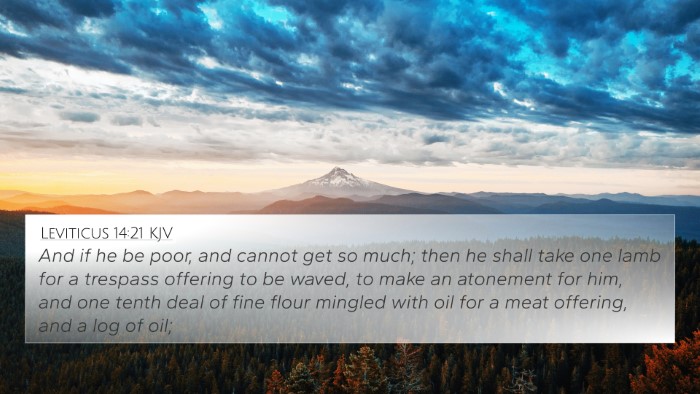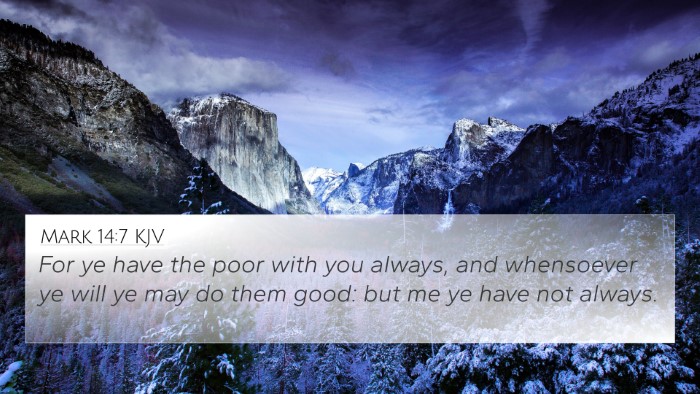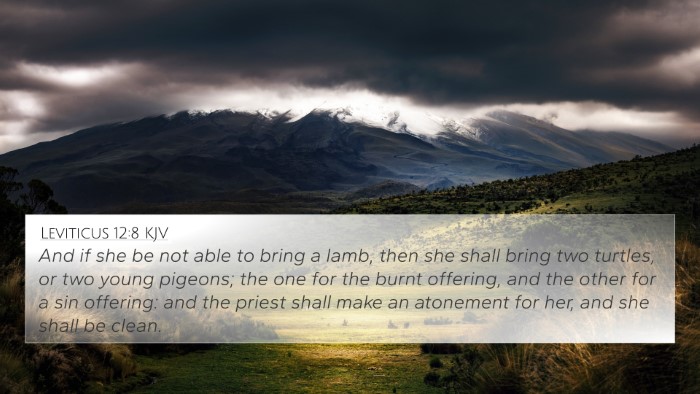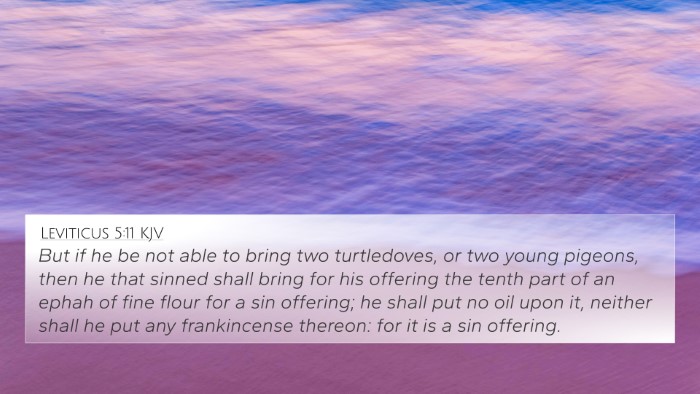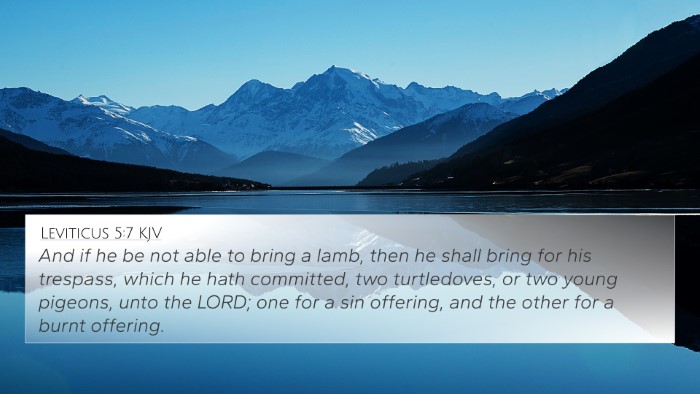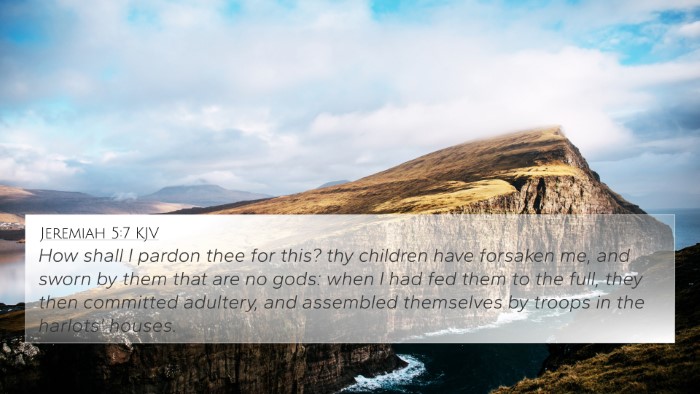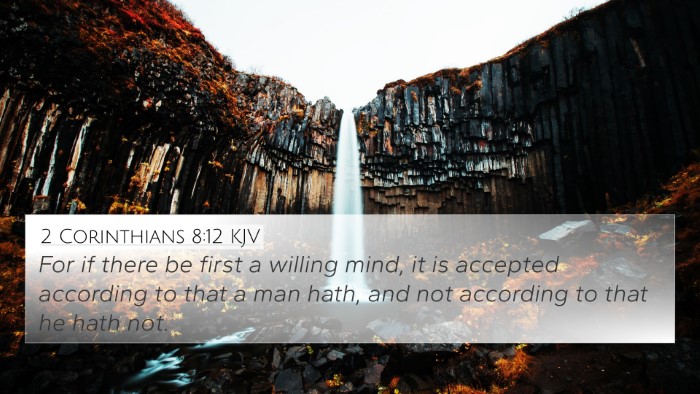Understanding Leviticus 27:8
Leviticus 27:8 reads, "If your means are insufficient to pay the valuation, then he shall be set before the priest. ” This verse introduces the regulations surrounding vows made to dedicate a person or property to the Lord, focusing particularly on those who may not have the means to meet the valuation given by the priest. This commentary synthesizes insights from various public domain Bible commentaries, aiming to provide a comprehensive understanding of this verse.
Contextual Overview
The book of Leviticus serves as a manual for the priests and the people of Israel regarding holiness and divine regulations. It is part of the Pentateuch, which outlines the law given to Moses. In Chapter 27, the focus is on making vows to God, particularly concerning the dedication of individuals to the Lord's service through valuation. These valuations were significant as they indicated the worth of a person or property being dedicated.
Meaning and Interpretation
This verse emphasizes the principle of being honest and fair in one's relationship with God and others. If a person could not fulfill their vow due to financial limitations, they were to stand before the priest, who would make the necessary determinations concerning their vow.
Insights from Commentaries
-
Matthew Henry:
Henry explains that the priest's role was crucial, acting as an intermediary who would assess the situation when an individual's means were insufficient. This reflects God's mercy and understanding of human limitation, underscoring that God does not expect more than one can give.
-
Albert Barnes:
Barnes elaborates that this regulation highlights God's desire for voluntary sacrifices rather than burdensome ones. The mention of the priest indicates a structured process in which ecclesiastical authority validates and assists individuals in fulfilling their commitments to God.
-
Adam Clarke:
Clarke points out that this verse teaches about social justice and compassion for the needy within the community of believers. The law reflects the principle that God desires the heart over the material sacrifice, denoting the importance of intention over mere financial capability.
Cross-References
This section identifies several Bible verses that relate to Leviticus 27:8, highlighting the thematic connections and scriptural parallels that can enhance understanding:
- Exodus 30:12: Discusses the concept of atonement money, presenting a similar scenario where individual capabilities are taken into account.
- Matthew 5:23-24: Jesus speaks of the importance of reconciliation and fulfilling duties to God and one another, akin to addressing unfulfilled vows.
- 1 Timothy 6:17-19: Paul addresses the rich and their obligations, reminding them to be generous while reflecting on their stewardship before God.
- James 1:27: Highlights pure religion involving care for others, connecting to the idea of supporting the vulnerable, as seen in Levitical regulations.
- Luke 14:28-30: Encourages counting the cost before following Christ, which relates to the importance of understanding one’s limitations.
- 2 Corinthians 9:7: Emphasizes cheerful giving according to what one has, not out of compulsion, supporting the notion that God desires our hearts.
- Galatians 6:2: Calls for bearing one another’s burdens, aligning with the community's role in helping those unable to meet their vows.
- Psalms 50:14-15: God desires sincere gratitude over mere offerings, reminiscent of the themes in Leviticus concerning the spirit of vows.
- Malachi 1:8: Discusses the requirement of offerings that reflect one’s best, contrasting the significance of dedicating oneself wholly to God.
- Romans 12:1: Encourages believers to present themselves as a living sacrifice to God, resonating with the theme of full dedication found in Leviticus.
Thematic Connections
The theme of dedication and sacrifice is central in both the Old and New Testaments, revealing God's enduring desire for a sincere relationship with His people. The verses listed above serve as tools for Bible cross-referencing, assisting readers in mapping out these critical connections.
Tools for Bible Cross-Referencing
Employing tools for Bible cross-referencing can enhance one's study and understanding of such verses:
- Bible Concordance: Helps locate specific words and their occurrences throughout Scripture.
- Bible Cross-Reference Guide: Offers tools to navigate related verses, enhancing comparative Bible verse analysis.
- Cross-Reference Bible Study: Engaging in methods that integrate multiple scriptures to uncover deeper meanings.
- Comprehensive Bible Cross-Reference Materials: Such aids can illustrate links between the Prophets and Apostolic teachings effectively.
- Bible Chain References: Allows believers to follow thematic trails through various biblical texts.
Conclusion
Leviticus 27:8 encourages us to consider our commitments to God with sincerity while recognizing our limitations. The interplay of mercy, obligation, and community within this verse portrays a holistic approach to faith and dedication. Through inter-biblical dialogue and scriptural cross-referencing, we can gain a profound understanding of how God’s principles of justice, compassion, and sincerity shape our response to His calling.
